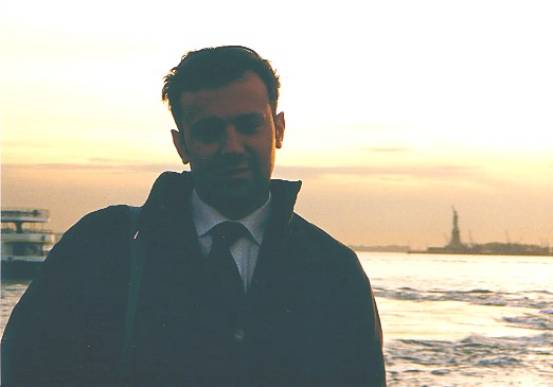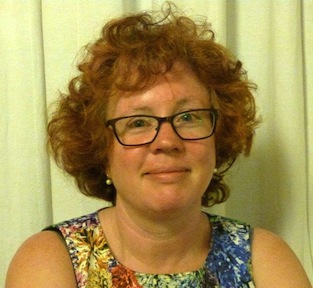Studying at the University of Verona
Here you can find information on the organisational aspects of the Programme, lecture timetables, learning activities and useful contact details for your time at the University, from enrolment to graduation.
Academic calendar
The academic calendar shows the deadlines and scheduled events that are relevant to students, teaching and technical-administrative staff of the University. Public holidays and University closures are also indicated. The academic year normally begins on 1 October each year and ends on 30 September of the following year.
Course calendar
The Academic Calendar sets out the degree programme lecture and exam timetables, as well as the relevant university closure dates..
| Period | From | To |
|---|---|---|
| I semestre | Oct 1, 2009 | Jan 16, 2010 |
| II semestre | Feb 22, 2010 | May 31, 2010 |
| Session | From | To |
|---|---|---|
| sessione esami invernale | Jan 18, 2010 | Feb 20, 2010 |
| sessione esami estiva | Jun 1, 2010 | Jul 10, 2010 |
| sessione esami autunnale | Sep 1, 2010 | Sep 29, 2010 |
| Session | From | To |
|---|---|---|
| Sessione lauree autunnale | Nov 26, 2009 | Nov 28, 2009 |
| Sessione lauree invernale | Apr 7, 2010 | Apr 10, 2010 |
| Sessione lauree estiva | Jul 12, 2010 | Jul 16, 2010 |
| Period | From | To |
|---|---|---|
| Festa di Ognissanti | Nov 1, 2009 | Nov 1, 2009 |
| Festa dell'Immacolata Concezione | Dec 8, 2009 | Dec 8, 2009 |
| Vacanze di Natale | Dec 23, 2009 | Jan 6, 2010 |
| Vacanze di Pasqua | Mar 29, 2010 | Apr 6, 2010 |
| Festa della Liberazione | Apr 25, 2010 | Apr 25, 2010 |
| Festa del Lavoro | May 1, 2010 | May 1, 2010 |
| Festa del Santo Patrono di Verona S. Zeno | May 21, 2010 | May 21, 2010 |
| Festa della Repubblica | Jun 2, 2010 | Jun 2, 2010 |
Exam calendar
Exam dates and rounds are managed by the relevant Foreign Languages and Literatures Teaching and Student Services Unit.
To view all the exam sessions available, please use the Exam dashboard on ESSE3.
If you forgot your login details or have problems logging in, please contact the relevant IT HelpDesk, or check the login details recovery web page.
Should you have any doubts or questions, please check the Enrollment FAQs
Academic staff
Cerrito Stefania
 stefania.cerrito@univr.it
stefania.cerrito@univr.it
 cecilia.grana@univr.it
cecilia.grana@univr.it

Locher Elmar
 elmar.locher@univr.it
elmar.locher@univr.it
 +39 045802 8311
+39 045802 8311
Longhi Silvia
 silvia.longhi@univr.it
silvia.longhi@univr.it
 +39 045802 8329
+39 045802 8329
Tarozzi Bianca Grazia
 bianca.tarozzi@univr.it
bianca.tarozzi@univr.it
 +39 045 802 8467
+39 045 802 8467
 francesco.vecchiato@univr.it
francesco.vecchiato@univr.it

Zaccarello Michelangelo
 michelangelo.zaccarello@univr.it
michelangelo.zaccarello@univr.it
 +39 045 802 8330
+39 045 802 8330
Study Plan
The Study Plan includes all modules, teaching and learning activities that each student will need to undertake during their time at the University.
Please select your Study Plan based on your enrollment year.
1° Year
| Modules | Credits | TAF | SSD |
|---|
Prima letteratura straniera anno ISeconda letteratura straniera anno IPrima lingua straniera anno ISeconda lingua straniera anno I2° Year activated in the A.Y. 2010/2011
| Modules | Credits | TAF | SSD |
|---|
Prima letteratura straniera o materia d'areaSeconda letteratura straniera o materia d'area anno IIPrima lingua straniera anno IISeconda lingua straniera anno II3° Year activated in the A.Y. 2011/2012
| Modules | Credits | TAF | SSD |
|---|
Prima lingua straniera anno IIISeconda lingua straniera anoo III| Modules | Credits | TAF | SSD |
|---|
Prima letteratura straniera anno ISeconda letteratura straniera anno IPrima lingua straniera anno ISeconda lingua straniera anno I| Modules | Credits | TAF | SSD |
|---|
Prima letteratura straniera o materia d'areaSeconda letteratura straniera o materia d'area anno IIPrima lingua straniera anno IISeconda lingua straniera anno II| Modules | Credits | TAF | SSD |
|---|
Prima lingua straniera anno IIISeconda lingua straniera anoo IIILegend | Type of training activity (TTA)
TAF (Type of Educational Activity) All courses and activities are classified into different types of educational activities, indicated by a letter.
English Literature I [CInt A-L] (2009/2010)
Teaching code
4S00844
Teacher
Credits
6
Language
Italian
Scientific Disciplinary Sector (SSD)
L-LIN/10 - ENGLISH LITERATURE
Period
II semestre dal Feb 22, 2010 al May 31, 2010.
Location
VERONA
Learning outcomes
The module aims at offering an overview of nineteenth- and twentieth-century English literature with particular reference to some of its major works, as well as at presenting the students with the basics of textual and literary genre analysis.
Program
Moses and the others. Biblical routes/roots in Victorian poetry.
Through a selection of Victorian poetry, and with special regard to the dramatic monologue genre, the module aims at retracing interpretative routes that rely on the typological reading of the Bible.
The module will be set up into lectures (24h = 4CFU) and a seminar (24h = 2CFU) intended to further the discussion of the syllabus and to apply to textual analysis the critical tools presented during the classes. Non-attending students are required to follow the primary text and reference lists recommended to attending students and to complement it with the supplementary reference list.
Language: the module will be held in Italian; primary texts will be read in English.
BIBLIOGRAPHY
Primary texts
- R. Browning, «The Bishop Orders His Tomb at Saint Praxed’s Church», Dramatis Romances and Lyrics [1845], in Poems – Poesie, a c. di A. Righetti, Mursia, 1990.
- R. Browning, «One Word More», Men and Women [1855], any English edition.
- G. M. Hopkins, «A Soliloquy of One of the Spies left in the Wilderness» [1864], any English edition.
- G. M. Hopkins, «Winepress and Barnfloor» [1865], any English edition.
- T.S. Eliot, The Love Song of J. Alfred Prufrock [1917] in Opere di T.S. Eliot, a c. di R. Sanesi, Bompiani, 1961, pp. 160-168.
- J. Joyce, The Dead, da Dubliners [1914], Penguin, 1992, pp.175-225.
- V. Woolf, da To the Lighthouse [1927], Penguin, 1992, pp. 31-35.
- S. Beckett, Krapp’s Last Tape [1958], in Krapp’s Last Tape and Embers, Faber, 1959, pp. 7-20.
References
- E. Auerbach, «Figura», in Studi su Dante, a c. di D. della Terza, Feltrinelli, 2007, pp. 176-226.
- C. Segre, «Generi», in ID., Avviamento all’analisi del testo letterario, Einaudi, 1985, pp. 234-263.
- A. Righetti, «Introduzione» in R. Browning, Poems – Poesie, a c. di A. Righetti, Mursia, 1990, pp. 5-33.
- C. D. J. Pearsall, «The Dramatic Monologue», in The Cambridge Companion to Victorian Poetry, CUP, pp. 67-88.
- E. Auerbach, Mimesis. Il realismo nella letteratura occidentale, Einaudi, 1972, vol. II, pp. 305-338.
- F. Gozzi, «La rottura dei codici: il linguaggio protagonista», in G. Cianci (a c. di), Modernismo/i: dall’avanguardia storica agli anni Trenta e oltre, Principato, 1991, pp. 290-312.
- G. P. Landow, Victorian Types, Victorian Shadows. Biblical Typology in Victorian Literature, Art and Thought, Routledge & Kegan Paul, 1980, pp. 3-63 e pp. 179-187.
- M. Bacigalupo, «Le poetiche dell’impersonalità: Pound, Eliot, Joyce e Lewis», in G. Cianci (a c. di), Modernismo/i: dall’avanguardia storica agli anni Trenta e oltre, Principato, 1991, pp. 262-264.
- T.S. Eliot, Tradition and the Individual Talent e Hamlet, in Selected Prose of T.S. Eliot, a c. di F. Kermode, Faber, 1975, pp. 37-49.
- P. Lawley, «Stages of Identity: from Krapp’s Last Tape to Play», in The Cambridge Companion to Samuel Beckett, a c. di J. Pilling, CUP, 1994, pp.88-105.
Supplementary references for non-attending students
- A. Righetti, Dittico Eliotiano, Il Segno, 1984, pp. 11-93.
- A. Righetti, Il ritratto, l’epitaffio, il clavicordo. Analisi di tre monologhi drammatici di R. Browning, Libreria Universitaria Editrice, 1981, pp. 83-136.
- A. van Buren Kelley, The Novels of Virginia Woolf. Fact and Vision, The University of Chicago Press, 1973, pp. 114-143.
- P. O’Donovan, «Beckett’s Monologues: The Context and Conditions of Representation», in The Modern Language Review, Vol. 81, No. 2 (Apr. 1986), pp. 318-326.
Handbooks
As regards the literary and cultural context spanning from the 1830s to the present, students are free to choose between the following handbooks:
- A. Sanders, The Short Oxford History of English Literature, OUP, 2004.
- Storia della letteratura inglese, a cura di P. Bertinetti, Einaudi, 2000, vol. II.
To facilitate textual reading, students may refer to any of the following optional handbooks of narratology, rhetoric, stylistics and poetics:
Narratology:
- A. Marchese, L’officina del racconto, Milano, Mondadori, 1990.
Rhetoric, stylistics and poetics:
- B. Mortara Garavelli, Manuale di retorica, Milano, Bompiani, 1999.
- M. P. Ellero, Introduzione alla retorica, Firenze, Sansoni Editore, 1997.
- A. Marchese, Dizionario di retorica e stilistica, Milano, Mondadori, 2002.
- A. Marchese, Il laboratorio della poesia, Milano, Mondadori, 1997.
- O. Reboul, Introduzione alla retorica, Bologna, Il Mulino, 1996.
Please be advised
Further details on required readings and general information on bibliographical material will be provided during classes.
Examination Methods
The exam will consist in an oral discussion of the module’s topics in Italian and in English. Students attending the seminar may also take in progress written tests.
Non-attending students will take an oral exam only.
Teaching materials e documents
-
 Calendario conferenze Primavera 2010
(pdf, it, 51 KB, 17/03/10)
Calendario conferenze Primavera 2010
(pdf, it, 51 KB, 17/03/10)
-
 Calendario e Programma
(pdf, it, 118 KB, 25/02/10)
Calendario e Programma
(pdf, it, 118 KB, 25/02/10)
-
 Lezione prof. Enoch Brater - 12 aprile 2010
(pdf, it, 175 KB, 13/04/10)
Lezione prof. Enoch Brater - 12 aprile 2010
(pdf, it, 175 KB, 13/04/10)
Type D and Type F activities
To discover all the teaching activities accredited by the foreign teaching college click here
Career prospects
Module/Programme news
News for students
There you will find information, resources and services useful during your time at the University (Student’s exam record, your study plan on ESSE3, Distance Learning courses, university email account, office forms, administrative procedures, etc.). You can log into MyUnivr with your GIA login details: only in this way will you be able to receive notification of all the notices from your teachers and your secretariat via email and soon also via the Univr app.
Student login and resources
Gestione carriere
Assegnazione tutore
Attività accreditate D/F
Calendario didattico dettagliato
Cambio lingua curriculare
Competenze informatiche
Competenze linguistiche (prima e seconda lingua)
Competenze linguistiche in triennale (terza lingua CFU F)
Compilazione del piano didattico
Corso di Lingua portoghese
Erasmus+ e altre esperienze all'estero
Linguistic training CLA
Presentazione dei corsi di studio e Open day
Graduation
List of theses and work experience proposals
| Stage | Research area |
|---|---|
| PROGETTO MAMBRINO Stage per bibliografia | Various topics |
Saperi minimi
Stage e tirocini
Nel piano didattico della laurea triennale in Lingue per il turismo e il commercio internazionale (L12) è previsto un periodo di stage obbligatorio (CFU 6) in organizzazioni imprenditoriali.
Le attività di stage sono finalizzate a far acquisire allo studente una conoscenza diretta in settori di particolare interesse per l’inserimento nel mondo del lavoro e per l’acquisizione di abilità professionali specifiche.
Le attività di stage sono svolte sotto la diretta responsabilità di un singolo docente presso studi professionali, enti della pubblica amministrazione, aziende accreditate dall’Ateneo veronese.
I crediti maturati in seguito ad attività di stage saranno attribuiti secondo quanto disposto nel dettaglio dal “Regolamento d’Ateneo per il riconoscimento dei crediti maturati negli stage universitari” vigente.
- Tutte le informazioni in merito agli stage per futuri studenti sono disponibili alla pagina Stage e tirocini.
- Tutte le informazioni in merito agli stage per studenti iscritti sono pubblicate in MyUnivr - come fare per - stage e tirocini.
- Tutte le informazioni in merito agli stage per le aziende sono disponili alla pagina Stage e tirocini per azienze.
Ulteriori informazioni al seguente link https://www.univr.it/it/i-nostri-servizi/gestione-carriere-studenti-lingue-e-letterature-straniere/stage-e-tirocini-lingue-e-letterature-straniere


































